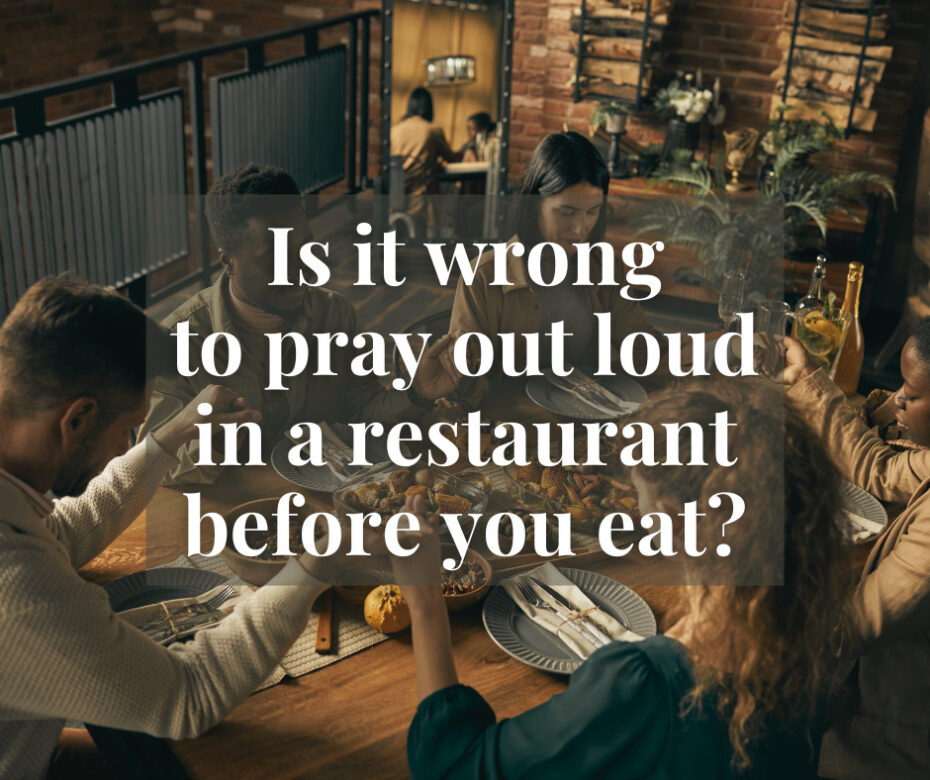Now when Daniel knew that the writing was signed, he went home. And in his upper room, with his windows open toward Jerusalem, he knelt down on his knees three times that day, and prayed and gave thanks before his God, as was his custom since early days. Then these men assembled and found Daniel praying and making supplication before his God. And they went before the king, and spoke concerning the king’s decree…” (Dan 6:10-12).
I received a great question during my class on Resurrection Sunday. We’d been talking about things like Lent, Fat Tuesday, fasting, and Pharisee-style praying. At one point, I mentioned the Lord’s teaching in Matt 6:1-21. We should not pray, fast, or give to be seen by men. Instead, we should do these things privately, and God will then reward us publicly at the Bema.
Oscar asked about Daniel’s prayers that resulted in his being arrested and thrown into the lion’s den (Dan 6:10-12). Was Daniel violating the principle that later became part of Scripture?
Daniel was observed praying: “[they] found Daniel praying.” He had intentionally prayed “with his window open toward Jerusalem.”
Was Daniel praying out loud? The text does not say. But it may be implied by the fact that the snoopers caught him in the act. Of course, it is possible that the snoopers looked through his window and saw him praying silently.
Jamieson, Fausset, and Brown comment on his praying with his window open, “not in vainglory [excessive vanity and pride], but that there might be no obstruction to his view of the direction in which Jerusalem, the earthly seat of Jehovah under the Old Testament, lay; and that the sight of heaven might draw his mind off from earthly thoughts. To Christ in the heavenly temple let us turn our eyes in prayer, from this land of our captivity” (Commentary Critical and Explanatory on the Whole Bible, Vol. 1, pp. 631–632).
The Lord did not prohibit praying with your window open (although, see Matt 6:6). However, there is no suggestion that what Daniel did was public or attention-seeking. Daniel didn’t go to the city gate to kneel and pray. He continued his normal private practice, even at the threat of execution.
Bob Deffinbaugh at Bible.org takes a different view (see here):
Why did Daniel simply not pray out of sight? After all, is not prayer a private matter? Does not our Lord later advocate private prayer and express disdain for public prayer [Matt 6:1-6]?
We know our Lord was not condemning all public prayer, but rather teaching His disciples not to pray in order to appear pious and gain the praise of men. Daniel’s “public prayer” would surely not bring him praise, but it would result in his prosecution as a law-breaker…
This particular law implied something utterly inconsistent with and contrary to God’s law. To make that point, he had to publicly violate that law.
Daniel could be sure that he would not impress people with his prayers. He had every reason to believe he’d be arrested.
But what about us? Are there ways we might violate Matthew 6 when we pray?
Is it wrong, for example, to pray out loud in a restaurant before you eat? Well, it depends on your motive and your conviction. If you understand Matt 6:6-7 to prohibit public prayer except in church meetings, then it would be wrong for you. But if you do not, then it would be fine as long as you were not seeking to gain the praise of men for your piety.
In my opinion, public prayers should be brief, in light of Jesus’ denouncing the long prayers of the scribes and Pharisees (Matt 23:14). I’m comfortable with a ten-second prayer of thanks for the food at Red Lobster. I am uncomfortable with public prayers that exceed half a minute and cover far more than thanks for the food.
What about Tebowing? I get the fact that it is a witness. But I’m a bit uncomfortable with it in light of Matthew 6. Team prayer in the locker room before and after the game is more appropriate. Even players from both football squads kneeling at the center of the field and praying collectively after the game seems consistent with Matthew 6. But I would not be comfortable kneeling and praying by myself (or in a small group) in public.
I do not know how the Lord will judge believers who kneel and pray publicly. Each of us must decide what we understand Scripture to teach and act accordingly. But our actions should flow from the right motives and our understanding of Scripture.
Daniel pleased God with his actions. Let’s seek to please Him in all we do as well.


